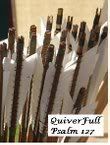 50 WAYS TO SAVE BIG AT THE GROCERY STORE
50 WAYS TO SAVE BIG AT THE GROCERY STOREBy Lois Breneman, © 2009, Heart to Heart Newsletter
(to sign up for heart to heart, contact Lois here)
It is rewarding to learn new ways to save big at the grocery store. Many of these tips to save money start in your home, before you ever get to the store. Some involve careful planning and using what you already have to the fullest potential, so you won't need to buy as much at the grocery store. Remember, you only pay taxes on purchases made, so buying less means lower taxes for you. I'll give you some pointers, many of which I'm sure you are already putting into practice. In that case, you might want to use this article as a checklist to prove to yourself how well you are doing. But even if you happen to find only one or two new ideas, it would be worth implementing them as well to save even more.
Plan your meals around each week's grocery store sales. Write up a sketchy menu plan, but be flexible.
Take advantage of the markers for grocery store items giving the price per ounce or serving. These are very helpful.
The store brands are usually less expensive and have the same ingredients as higher costing brands. Take advantage of that.
Invest in a freezer. You will be able to stock up on food that is on sale and freeze many meals ahead to make life easier.
Prepare large batches of food ahead of time - casseroles, meat loaves, quiche, chile, meat dishes, vegetable dishes, quick breads, etc. and freeze them.
Load up your freezer with frozen vegetables when they go on sale at the rock bottom price. Never buy them at full price. Frozen vegetables are generally picked at the peak of ripeness and immediately flash frozen, which also correlates with greater nutritional value. This is a healthy and economical option during in-season and off-season months.
Pack lunches rather than buying lunch out. Get the family involved in packing lunches to make it easier. Include foods like individually wrapped frozen quick breads (from your freezer), nuts, fresh fruit, fresh vegetables, yogurt and sandwiches.
Eat out much less often and make it more special when you do. If possible, when you do, use a coupon and drink water instead of ordering a drink of any kind. In reality, restaurant meals should be added to your food budget. Freezing meals ahead will help cut down on eating out. Try copying and serving a few meals similar to those you've enjoyed while eating out at your favorite restaurant. Then set a pretty table, get out the best dishes, light a candle, and put on some soothing music.
When staple items are on sale, stock up, so you don't run out. By preventing extra trips to the grocery store, you will save on gas as well as extra purchases.
One time it is worth a return trip to the store later in the week would be when a favorite fresh produce item is marked way down. It may be worth an extra return trip - or ask your husband to stop by on his way home from work.
Never pay full price for staple grocery items that keep over a long period of time. Items like toilet paper, tissues, paper towels, napkins, toothpaste, toothbrushes, Ziplock bags, cleaning supplies, etc. are often less expensive at a dollar store. These stores take coupons, but do not double them.
It does not pay to stock up too far ahead on certain staples such as salad dressings, mayonnaise and other dated items. If you do, you'll lose money.
Most grocery stores are closed on Christmas Day, which means they drastically slash the prices of meat on the afternoon of Christmas Eve. Ask your store's meat department supervisor when the meats will be marked down, so you can be there early enough. Chicken usually goes first. You may want to be ready for Christmas ahead of time, so you can take advantages of this.
Most grocery stores have a special place where they display marked down meats daily - those with dates ready to expire. Plan to have one of those packs of meat for dinner the evening of your grocery shopping. You may decide to freeze some as well.
A slow cooker allows you to turn less expensive cuts of meat into delicious, melt-in-your-mouth meals.
Since meat is often the most expensive food in a meal, use less of it in casseroles. Cut chicken breasts in half, lengthwise for smaller servings. Have one or two meatless meals each week. Use other protein in that meal.
Eggs, dried beans and brown rice are all low cost foods that have unlimited possibilities. Soak dried beans in fresh water overnight, drain and rinse well, then cook on the stovetop or in a slow cooker, covered in more fresh water until tender, skimming off any foamy water. Cooked beans, as well as brown rice freeze very well for quick meals, so get out your big Dutch oven or slow cooker and start cooking! Unbaked quiche also freezes very well. Onions and garlic are relatively low cost, and add great flavor, so give your dishes wonderful extra zip. Onions can also help stretch some recipes.
Save by buying bags of onions, lemons, or other citrus fruit, rather than purchasing them individually or per pound. Freeze lemon juice in ice cube trays for cooking use and spur-of-the-moment fresh lemonade.
Make large pots of different varieties of homemade soup at a time. Freeze individual servings for lunches, if a microwave is available. Serve "Free Soup" as well. Keep a container in your freezer for any leftovers, such as cooked meat, broth, gravy, sauces, beans, rice, pasta and vegetables. When it's full, heat it up, add anything else you want, and serve your free flavorful soup!
Buy whole carrots in one, two or five pound bags, rather than sending more on baby carrots, unless the cost is slashed. Buying 5 # bags of organic carrots on sale is an especially good buy. Peeling isn't necessary - just scrub well with a vegetable brush, or scrape with a sharp paring knife.
Some grocery stores offer a discount on gas, depending on how many points you accumulate in a given month. Using a gift card to buy your groceries doubles your gas points. Some Christian schools are also set up to receive a percentage of your grocery store purchases, given by the store through a gift card purchase, so inquire at your school about that. This won't save on your grocery bill, but may allow more families to take advantage of Christian education, by keeping the cost down.
Use paper towels only for the messiest jobs. Otherwise use cloth towels. Some families also save on napkin purchases by making wrinkle free cloth napkins.
Rather than wiping up babies and toddlers at mealtimes with napkins, paper towels, or a dirty dishcloth, cut an old towel into eight cloths, zig zag the edges, and use those or baby washcloths (dampened). Use them only for wiping up Baby after meals. They do a better job than paper towels anyway.
Make your own baby food. You will not only save big, but it will be much healthier for your baby, with no fillers or preservatives.
Save up to ten times the cost of herbs and spices by buying them in bulk at a health foods co-op, rather than your grocery store.
Use reverse osmosis, a distiller, or a filter (least expensive option) for your drinking water and forego purchasing bottled water.
Take an inventory of what you already have in stock in your refrigerator, freezer, and pantry. Make sketchy meal plans from that. Also if you see you are well stocked up on shampoo, cream rinse, skin lotions, paper towels, toilet paper, toothpaste and all purpose cleaners, etc., make a list to carry in your wallet, so you don't buy more, even if on sale. Use what you have on hand.
Make your own laundry soap for pennies per load (3 to 6 cents per load), rather than spending as much as 45 cents per load.
Make homemade cleaners when your store bought cleaners run out. Mix one part white vinegar to one part water in a spray bottle for cleaning windows, counter tops and bathrooms. Rubbing alcohol is good for making chrome sparkle, and baking soda has many cleaning uses. Use white vinegar and hot water for steam cleaning carpets.
Rather than buying special sprays to wash produce, spray them with diluted white vinegar. Let set a few minutes to kill germs and rinse. Natural organic dishwashing soap works well, and liquid organic-type cleaners are also available in concentrated form and go a long way (Melaleuca, Amway, Shaklee).
When a bottle of shampoo or cream rinse seems to be empty, add a little water and shake it up. You can often get a few more shampoos out of it.
When a tube of hand cream, makeup, etc. seems to be empty, cut the tube in half and you will find it's not empty at all! Put the contents in the bottom half and the empty half will fit over the bottom to save it until it's used up. Plastic containers of hand cream, etc. can also be carefully cut with a knife in order to use up the remaining contents.
Save slivers of soap bars. After you have a few, put them in a shallow dish of water and microwave for a minute or two. When softened, each sliver will mold onto a new bar of soap. Dove or Ivory works especially well, but other soaps stick together too.
Cook and bake from scratch as much as possible. Bake your own bread, cookies, desserts, pizza, etc. Buy baking yeast in bulk at a health food co-op or at Sam's, rather than in individual packets. It keeps very well in the freezer.
Many items bought at warehouses such as Sam's or Costco's can save money, but to keep food from spoiling before it's used, split some perishable items with a friend or family member.
Avoid packaged and processed foods as much as possible. They often contain sugar, corn syrup, dyes, preservatives, MSG, sodium nitrates, and ingredients your mind can't even take in when you read the labels. Neither can your body take them in, without adverse effects. Fresh produce, meats and dairy products are usually located around the perimeter of the store. Buy mostly whole foods as God made them.
Buy a few bushels of cooking apples at an orchard, and make applesauce, using a Squeezo or Victorian strainer. It makes quick work of the job. Cut out the blossom end, cut the apple into eights, and cook. This wonderful tool separates the stem, peel and the seeds from the applesauce! Freeze as much as will fit in your freezer and can the rest. Skip the sugar and add stevia just before serving. Buy fresh corn, green beans, strawberries, blueberries, cranberries, etc. in season when on sale and put in your freezer.
If you don't get the newspaper, it's worth picking up a Sunday paper just for the coupons. Use coupons and take advantage of double coupons (50 cents becomes $1). Many times an item that you have a coupon for will also be on sale, making your savings a double bonus. Some stores even offer triple coupons. You can save money using rebates as well. Some stores offer free items, if you send for a rebate.
If you qualify for the Senior Citizen discount, shop on that designated day - Tuesdays at many stores.
Serving healthy foods to your family will save on added expenses for cold and flu remedies, etc., and cut way down on misery too! Cut back on junk food. Eliminate soft drinks. Read labels.
If sweets are a downfall for you and your family, don't buy them. Make just a few healthy desserts and keep them in the freezer.
If the store is out of a sale item that you need, get a rain check at the office, so you can benefit from that sale the next time.
For breakfast, remember that cooked cereal is healthier and much less expensive than packaged. Boxed cereal is very expensive in comparison and most are loaded with various forms of sugar.
Many times the most expensive items in the store will be at eye level. Often you can look down closer to the floor for better buys.
Purchase produce in season. Skip watermelon when it's sky high during the winter. Eat fruits and vegetables found on sale.
Plant a garden and freeze as much as possible. Be sure to grow herbs that you can dry and use herbs to perk up dishes.
If possible, save money on apples by buying them at a nearby orchard. The flavor and quality is much better as well.
Don't allow your produce to spoil in the refrigerator. Use it as soon as possible. Use green bags to keep produce fresh longer. Wrapping celery in aluminum foil will keep it fresh much longer as well.
Buy bread, milk and orange juice on sale and freeze to save extra trips to the store. Drink about 1/4 cup first, since liquids do expand when frozen.
If fresh produce spoils or gets moldy after just a few days, or if milk sours or cheese molds before the date, on your next trip go to your grocery store office and let them know in a polite manner. They want to know. Having your receipt will help, but sometimes that isn't even necessary for them to gladly refund your money. They are always good at making it right. Always check over your receipt for mistakes, which happen from time to time.
When we work hard to put these tips into practice, we should see our grocery spending go down and our family will be healthier. Why not save this list and check to see how you are doing a month or two from now!




















1 comment:
Great ideas! :)
Shalom,
Miss Jocelyn
http://aponderingheart.com
http://feelinfeminine.com
Post a Comment